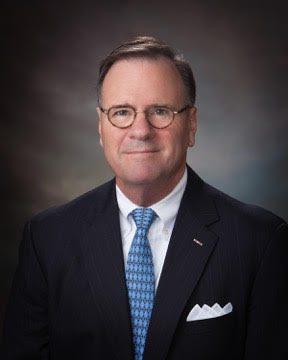Practioner Spotlight: Fred Brown

Fred Brown has enjoyed a long and varied career in healthcare in large and small markets across North Carolina. He started his work in healthcare as a high school student, when he worked as an orderly at Iredell Memorial Hospital in his home town of Statesville. After college, Mr. Brown served as an Army officer in Vietnam and helped to coordinate the evacuation of battlefield casualties. He used his G.I. Bill benefits from that military service to earn a master’s degree in public health at UNC Chapel Hill. After graduation, Mr. Brown served as the CEO of a hospital in Siler City, NC, a small community near Chapel Hill, and from there went on to hold executive positions at a number of hospital systems and consulting firms across the state. Mr. Brown also continued his service in the Air National Guard and served a 10-month period of active duty during Operation Desert Shield/Desert Storm, where he was responsible for coordinating air evacuations of over 18,000 people.
During Mr. Brown’s tenure as a healthcare administrator, he has witnessed tremendous change in the industry, a trend that he sees accelerating. As an ACHE Fellow an former North Carolina Regent, he sees a critical need for community health and bringing healthcare and wellness services to populations where they live, particularly in rural areas. A new generation of healthcare executives will face the challenge of how to deliver that care efficiently and effectively to an aging population. Mr. Brown urges new administrators to think beyond building new buildings as a way to address this increased use of healthcare resources and to find innovative ways to intercede with the small number of patients who account for the bulk of the cost of healthcare.
Mr. Brown advises prospective healthcare administrators not to be afraid of trying something new. It is likely that the job titles that new graduates will hold in their first positions have not even been developed yet because of the rapid changes impacting the traditional healthcare delivery model. He sees exciting opportunities to educate patients to improve their health in non-traditional settings and to leverage the support of family and friends to encourage individuals to continue healthy behaviors.